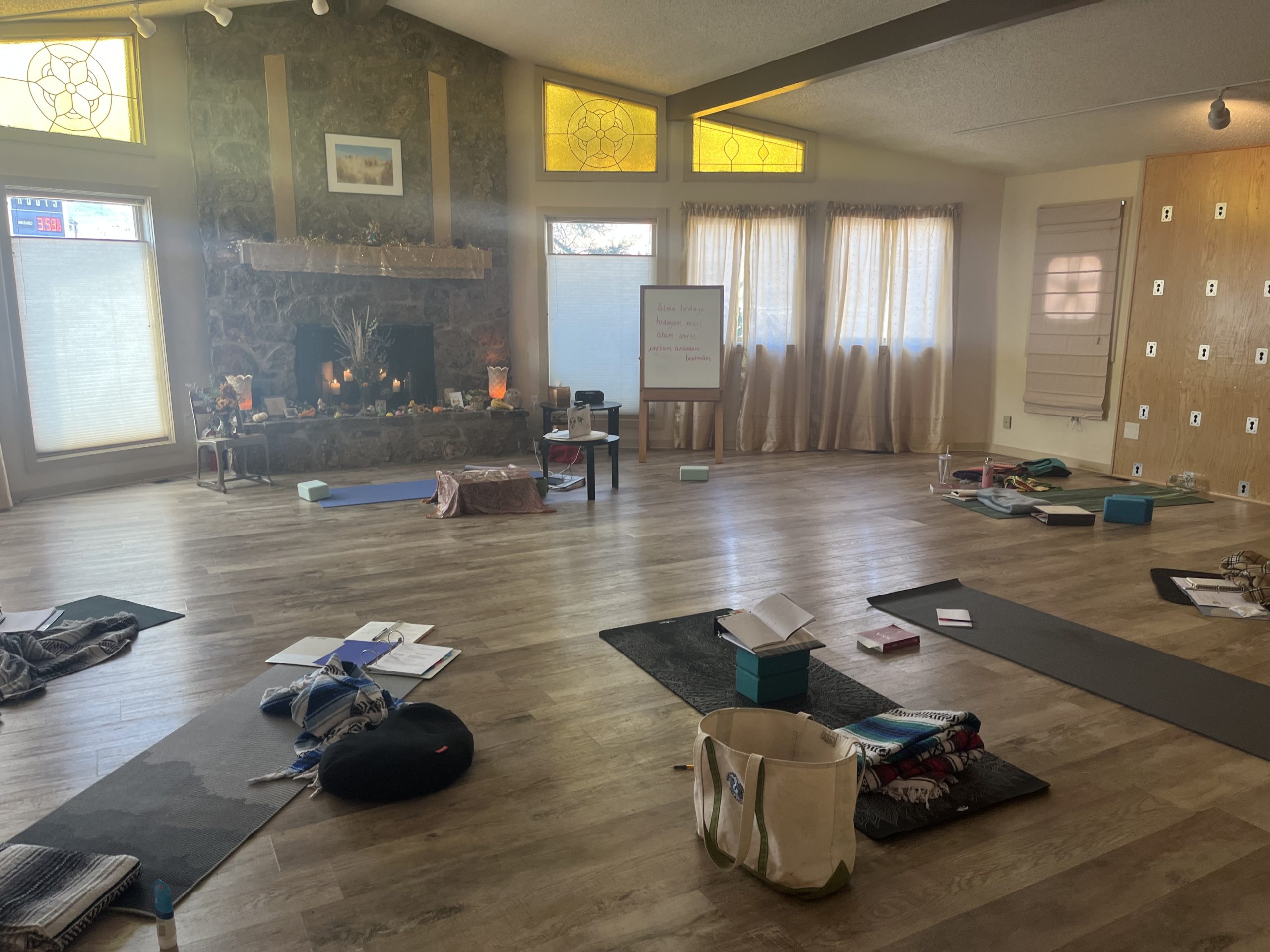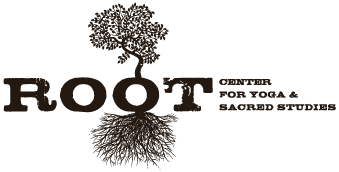
- This event has passed.
Introduction to Yoga: Texts, Theory, and Practice
Sat., July 1, 2023 @ 3:00 pm - 5:00 pm


- Detailed schedule below
- 2-3 sessions per month will be offered livestream and recorded (with in-person options for some sessions)
- Course Investment: $600
- Payment Plans will be available if you need to pay in 2-3 installments. Contact Root for info.
- Online course portal will provide space for module materials, discussions, and more
- You can start anytime, proceed on your own time if timing a challenge
As a ubiquitous, multi-billion dollar industry in the United States alone, the question, “What is Yoga?” is a complex one. Framed as a collective dip into this oceanic subject, this class will offer a balance of information and contemplation, study and experience. The goal will not be to provide a single definition of Yoga or define its authoritative cannon. Instead, we will explore the rich historical and philosophical contexts of Yoga through some of the seminal texts and follow its development as a spiritual practice into the modern iterations and predominance of postural practice. Drawing upon the relationships among Yoga, Samkhya, Tantra, and Ayurveda, we will examine the practical ways in which ancient teachings can and are incorporated into contemporary life.
The term “Yoga” derives from the Sanskrit root “yuj,” which means to unite, yoke, join, or control. Described in and defined by a variety different texts over several centuries, we can fairly say that there are many diverse streams of tradition, philosophy, and practice that flow into the vast ocean we now call Yoga. Yet, however hard it may be to make generalizations of such pluralistic origins, there is a common, consistent understanding of Yoga as a discipline of physical, mental, and ritual practices, ultimately undertaken to awaken and liberate oneself (and arguably the world) from suffering. While the roots of the yogic wisdom traditions have their origins in the region of South Asia, the last three decades have elicited an explosive popularity of yoga around the world. This global diffusion has entailed continuous transformation of both the goals and practices, as yogahas been adopted and adapted to diverse and distant social and cultural conditions–often very far removed from its historical roots and contexts. Indeed, yoga has been appropriated and re-visioned through an array of cultural prisms, including psychology, stress reduction, biomedicine, New Age religion, SBNR communities, music and transformative festivals, sports science, and fitness. Yoga has been integrated into therapeutic research and methodology (most notably trauma, addiction, cancer, and chronic pain) and has been a resource for social justice movements. On the other hand, unsurprisingly, this polysemous and adaptable quality of globalized yoga has also given rise to conflicts and controversies that range from critiques of cultural misappropriation and claims to authenticity and authority to scandals of rampant abuse by celebrity teachers.
Some of the issues in which we will engage and invite further scholarly inquiry include the human self and identity, Yoga in Hindu, Buddhist, Islamic and Jain contexts, the question of religion and Yoga, the body in and of Yoga, the guru/śiṣya (teacher/student) relationship, controversies (and possibilities) of modern yoga, the commercialization of Yoga, the politics of Yoga, and Yoga as embodied activism. In addition to readings, lectures, reflections, film, and discussions, the coursework will include the direct experience of some actual practices of Yoga across several traditions.
Course Objectives/Learning Goals:
- Understand historical and philosophical contexts of yogic traditions
- Engage with and critically analyze central texts that frame and inform the Yogic traditions
- Demonstrate basic familiarity with key Sanskrit terms, concepts, and practices of Yoga
- Differentiate among lineages of Yoga as they are expressed within and between various texts and traditions
- Contextualize modern Yoga and popular understandings in historical and sociological developments
- Explore critical methodological perspectives, including textual, historical and decolonial/postcolonial.
- Reflect thoughtfully on the ontological and epistemological assumptions of yogic traditions
Session Dates: (all times Mountain, most classes 90 min but 2 hours allotted) *some dates might shift; some dates will offer IN PERSON option TBD
Sat July 1, 3-5
Sun July 9, 2-4
Thurs July 27, 2-4
Sun Aug 6, 1-3
Thurs Aug 17, 1-3
Sun Aug 27, 1-3
Sun Sept 10, 2-3:30
Sun Sept 24, 2-4
Sun Oct 8, 1-3
Sun Oct 22, 1-3
Sun Nov 5, 12:30-2
Sun Nov 19, 12:30-2
Thurs Dec 7, 3-5
Thurs Dec 28, 2-4
Sun Jan 14, 12-2
Sun Feb 4, 12-2
Sun Feb 18, 12:30-2
Sun March 10, 1-4 FINAL SESSION

